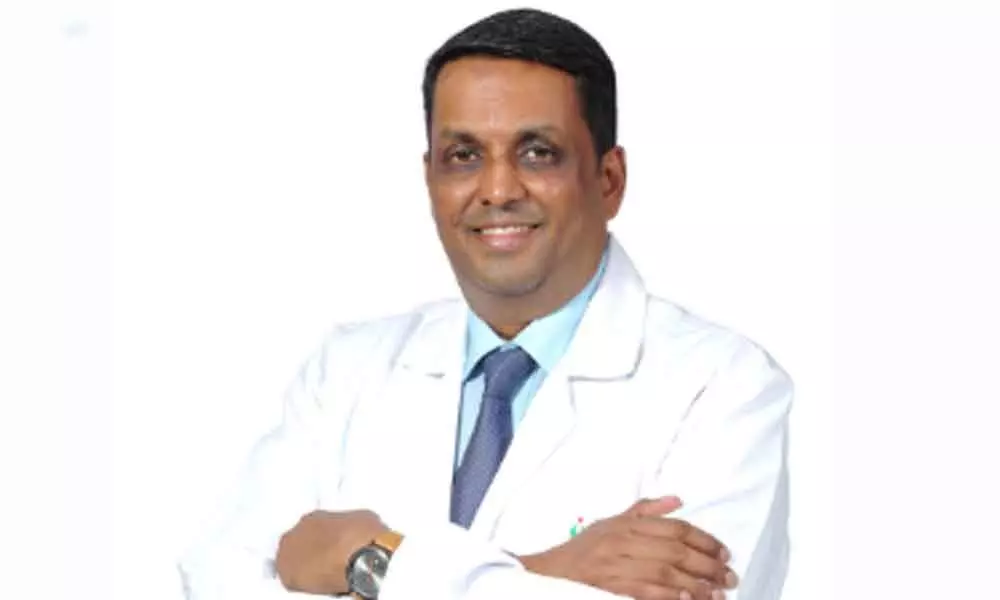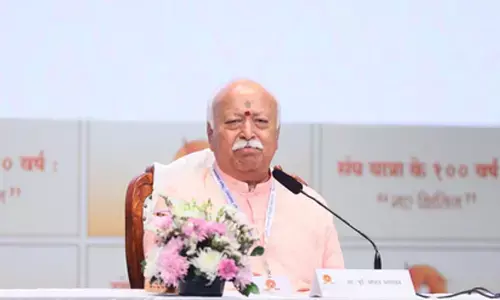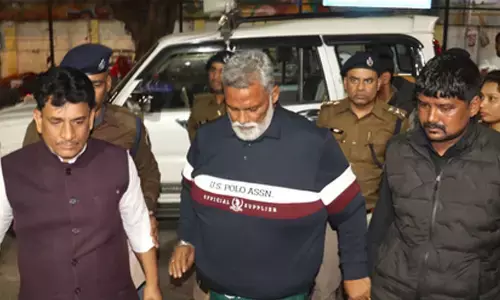Understanding chronic obstructive pulmonary disease

Dr Vivek Anand Padegal
COPD is a progressive chronic inflammatory lung disease that damages the bronchial tubes, restricting airflow into the lungs. Emphysema, Chronic Bronchitis, and Chronic Obstructive Asthma are all included in one umbrella term.
COPD is a progressive chronic inflammatory lung disease that damages the bronchial tubes, restricting airflow into the lungs. Emphysema, Chronic Bronchitis, and Chronic Obstructive Asthma are all included in one umbrella term. According to the World Health Organization, 65 million people worldwide suffer from moderate to severe COPD, which is expected to become the third most significant cause of mortality by 2030. COPD is a paramount health concern for governments and healthcare organizations and a primary cause of disability and impaired quality of life in communities all over the world. Individuals worldwide suffer from moderate to severe COPD, which is often undetected until chronic symptoms arise. COPD is a disease that affects individuals and families, and it is typically linked to tobacco smoking, yet one out of every five patients diagnosed with COPD has never smoked.
The use of tobacco is the leading cause of COPD. The danger of impaired lung function and lung disease is substantial for many persistent smokers, especially if the smoker is Asthmatic. Long-term exposure to harsh chemicals, pollutants, fumes, secondhand tobacco smoking exposure, and poorly ventilated households that utilize coal, wood, biomass for heating and cooking are the most common causes of COPD in developing countries. A genetic disease known as an alpha-1-antitrypsin deficiency is another cause of COPD events, in addition to environmental factors like smoking (up to 5 percent of cases, especially in the west).
Non-smokers who lack a protein called alpha-1 antitrypsin can develop emphysema in rare situations. Long-term cigarette smoking is the leading cause of lung damage in the great majority of patients with COPD. However, because not all smokers get COPD, additional factors are at play, such as a hereditary sensitivity to the disease.
Other risk factors for COPD in India include: The workplace exposure to particular gases or fumes (e.g., coal mines, industries). Heavy exposure to secondhand smoke and pollution.
Using a cooking fire without adequate ventilation or cooking with fossil fuels and kerosene regularly
Symptoms: COPD is typically misdiagnosed as a normal cold at first, with shortness of breath, intermittent coughing, and increased sputum output. As COPD progresses, the symptoms get more severe as the lungs become more damaged. Wheezing, chest tightness, and shortness of breath, as well as sensations of fatigue are all very obvious. Recurrent respiratory infections and weight loss are also prevalent. Swelling in the lower limbs, such as the legs, feet, and ankles, as well as a pronounced blueness in the lips and fingernail beds, can be signs of COPD in its later stages.
COPD tests and diagnosis: Visit a professional who will inquire about your symptoms and medical history. They will also do a physical examination and conduct breathing tests. If you have a persistent cough, let them know. Spirometry is the most commonly used test. You'll breathe through a large, flexible tube that's attached to spirometer equipment. It will indicate how much air your lungs can contain and how quickly you can blow it out. Other tests used to rule out other lung issues such as asthma or heart failure could be:
The X-rays of the chest to rule out emphysema, other lung conditions, or heart failure.
Also CT scan, which uses several X-rays to create a detailed picture of your lungs and can tell your doctor if you need surgery or if you have lung cancer.
Arterial blood gas test, which determines how well your lungs are bringing in oxygen and releasing carbon dioxide. Laboratory tests diagnose and rule out conditions, such as alpha-1-antitrypsin (AAT) deficiency, a genetic disorder
What Are the COPD Treatments?
Because there is no cure, the purpose of treatment is to alleviate your symptoms and halt the condition's progression. Your doctor will also aim to avoid or cure any issues so that you can live a better life.
Quitting smoking is one of the most effective ways to prevent COPD from worsening. Consult your doctor about the various options available to you.
It's possible that your symptoms can worsen for days or weeks at a time. You may notice that you're coughing more and producing more mucus or that you're having problems breathing. This is referred to as an acute exacerbation by your doctor. It could lead to lung failure if you don't address it. For advanced COPD Patients Pulmonary Rehabilitation can be very beneficial to the patient.
COPD can be fatal, and a person's life expectancy is mainly determined by whether or not they smoke, as well as the severity of their underlying lung damage. According to research published in 2009, those who smoke and have advanced COPD may lose roughly 6 years of their life expectancy, in addition to the 4 years that smoking takes away. COPD is permanent. However, smokers can lower their risk by stopping smoking. COPD is an irreversible lung disease that causes breathing difficulties. Although there is no cure, medication can help to manage symptoms and improve quality of life. Anyone who has been diagnosed with COPD should take steps to preserve their lungs. Quitting smoking is critical for smokers.
(The author is, Director, Pulmonary Disease, Fortis Hospital, Bangalore)














